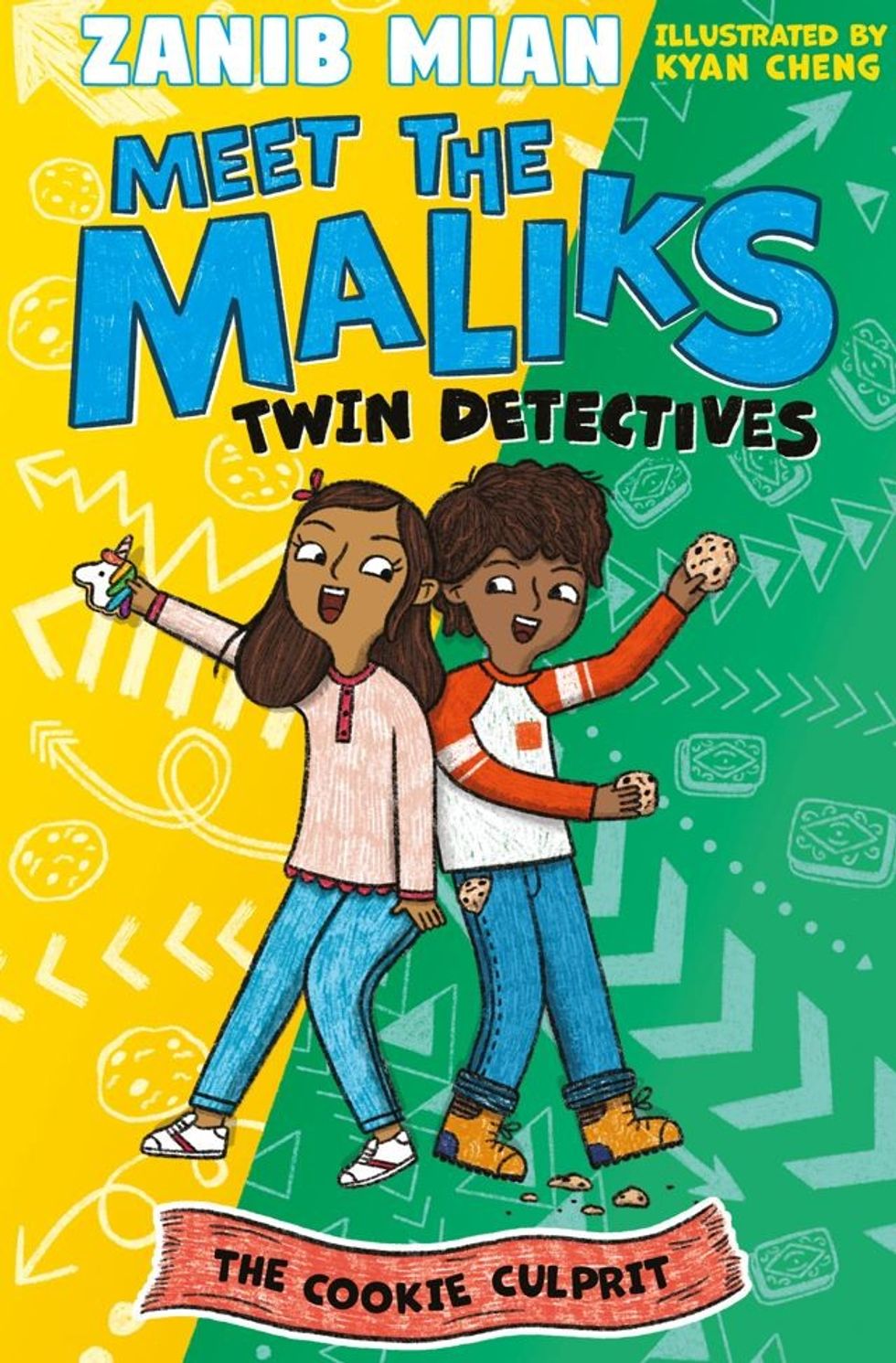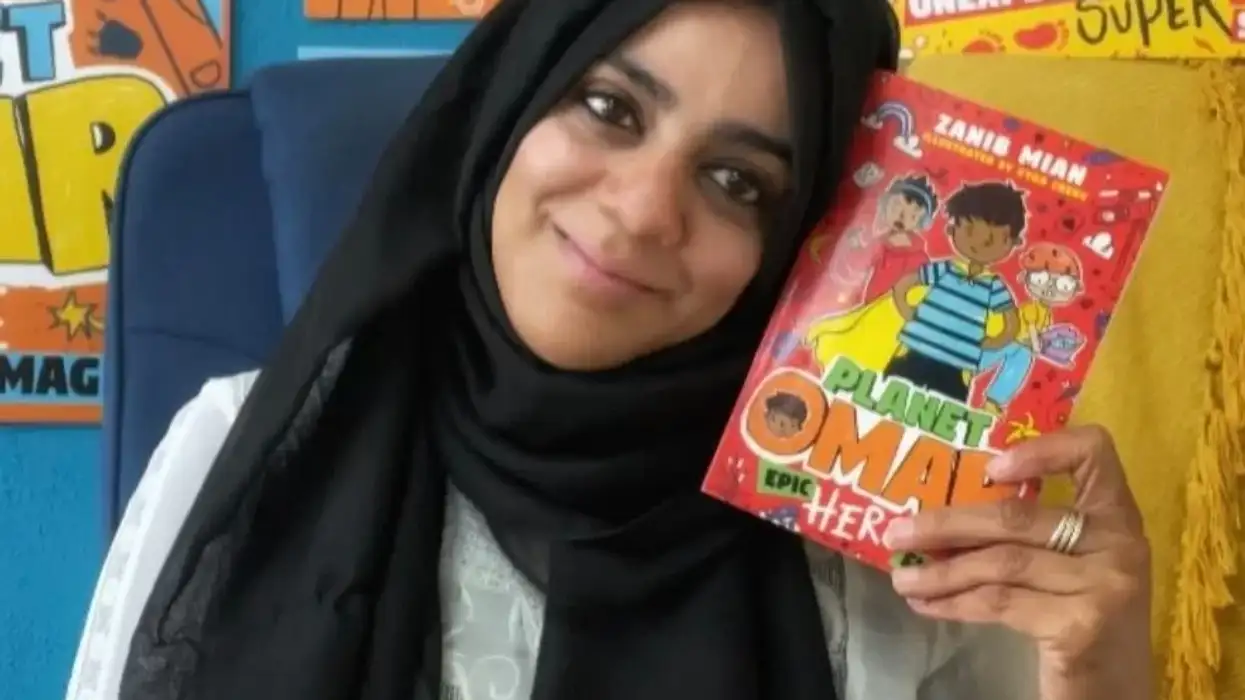AUTHOR Zanib Mian said she wanted to give readers “a window into the lives of everyday Muslims” with her new children’s book, Meet the Maliks – Twin Detectives.
Aimed at primary school children, the story revolves around twins Maysa and Musa Malik who set out to solve the mystery of who destroyed their treats at a cookie-making competition at a local mosque.
Writing from a British Muslim point of view was an opportunity to tackle misconceptions about the community, Mian said.
“I never start with a misrepresentation and then try to correct it. I write quite organically so people learn through the story,” she told Eastern Eye. “It’s not preachy at all, it just intertwines in the story. When you are writing about a Muslim family, things naturally come up – praying, wearing the hijab, fasting during Ramadan.”
She added: “We’ve come a long way, but I still feel Muslims can be misunderstood and misrepresented even today. This book is for people who don’t have Muslim friends or someone they’re close enough to that they can ask questions and learn from.

“It’s important to iron out misunderstandings and educate through these kinds of books, and for me to feature a Muslim family, a mosque, an imam.
“People who only know about Islam through the lens of right-wing newspapers, for example, will have a completely different image of what an imam is. I wanted everyone to meet the imamnext-door kind of thing.”
Mian’s books have featured on BBC’s Cbeebies Bedtime Stories and in the Guardian for their contribution to diversity in children’s literature.
Her Planet Omar series revolves around a young Muslim boy who, in his imagination, builds rockets, rescues his friends from ‘aliens’ and saves his local mosque from closing down, among other adventures.
The series also deals with issues such as bullying and prejudice in a sensitive way.
“I love when I get messages from teachers and parents saying the kids learned so much about Ramadan,” she recalled. “Parents have said to me, ‘we’re not even Muslim, but my kids go around saying Assalamu Alaikum to everyone’.
“It’s just equipping children with information so they can build a better picture in their minds instead of building like a Daily Mail picture when they grow up.”
Mian said she ensures her books have characters from different backgrounds so it appeals to all children. In Planet Omar, the lead character’s friends are Charlie and Daniel. And in Meet the Maliks, the twins go on their adventures with their neighbour and friend Norman.
“There’s a lot that appeals to non-Muslim readers as well, because they are just everyday kids and doing everyday stuff. Even though there are things about Islam and Muslims, it’s more than that,” she said.
“It was very intentional (to have nonMuslim characters). Norman asks questions which provides me the opportunity to educate the reader. There’s a funny scene where Norman’s doing his wudu (ablution before praying) for the first time and the kids teach him how to do it. He asks, ‘why are you waking up in the middle of the night to eat?’. And we find out because it’s Ramadan and the kids are having suhur (pre-fast meal).”
She added: “Kids are going to grow up having Muslim and non-Muslim friends. The story is just organic. It’s just being real.
“We have a responsibility because if we don’t do it, then someone else is going to do it the wrong way. As a Muslim author I see it as a responsibility and I love doing it.”
Mian didn’t see Muslim characters in books when she was a child and this continued when she had children herself – she said they couldn’t relate to characters in books they read. After studying molecular cell biology at UCL, she worked as a science teacher before switching careers to write children’s books.
“As a little girl, I wrote lots of poetry and stories. I have got notebooks filled with stories and poems which my mum kept for me. Then at high school I followed my love for science and completely lost that side of myself until I had my own kids,” she said.
“I told my children stories and realised there’s literally no ethnic minority characters in fun stories. You’ll find them in stories about Ramadan or Diwali, but there was nothing in mainstream, fun stories.
“I published my first book in 2009 while I was still teaching. That was when nobody was talking about the lack of diversity in books or on screen. But I was self-publishing books featuring families from minority backgrounds.
“In 2014, I realised if I wanted to really make a go of this and get the books on the shelves and do it properly, I was going to have to give up my teaching job and focus on it as a full-time thing.”
Planet Omar was originally called The Muslims. Main admitted it was a struggle to get publishers on board, so she published the book herself, although that meant struggling to get it in the mainstream.
“My vision was to open up my tiny little independent publishing house and publish books by other authors,” she said.
“In 2013, the hashtag We Need Diverse Books really took off and it became a conversation where publishers were addressing this issue. But it took a while. I was still publishing my own books. It was really hard to get them on the shelves because they weren’t being published by one of the big five publishers.
“Then in 2017, Planet Omar won the Little Rebels Children’s Book Award which got the attention of the publishers and they told me they were interested.
“It was a kind of a funny route into traditional publishing.”




